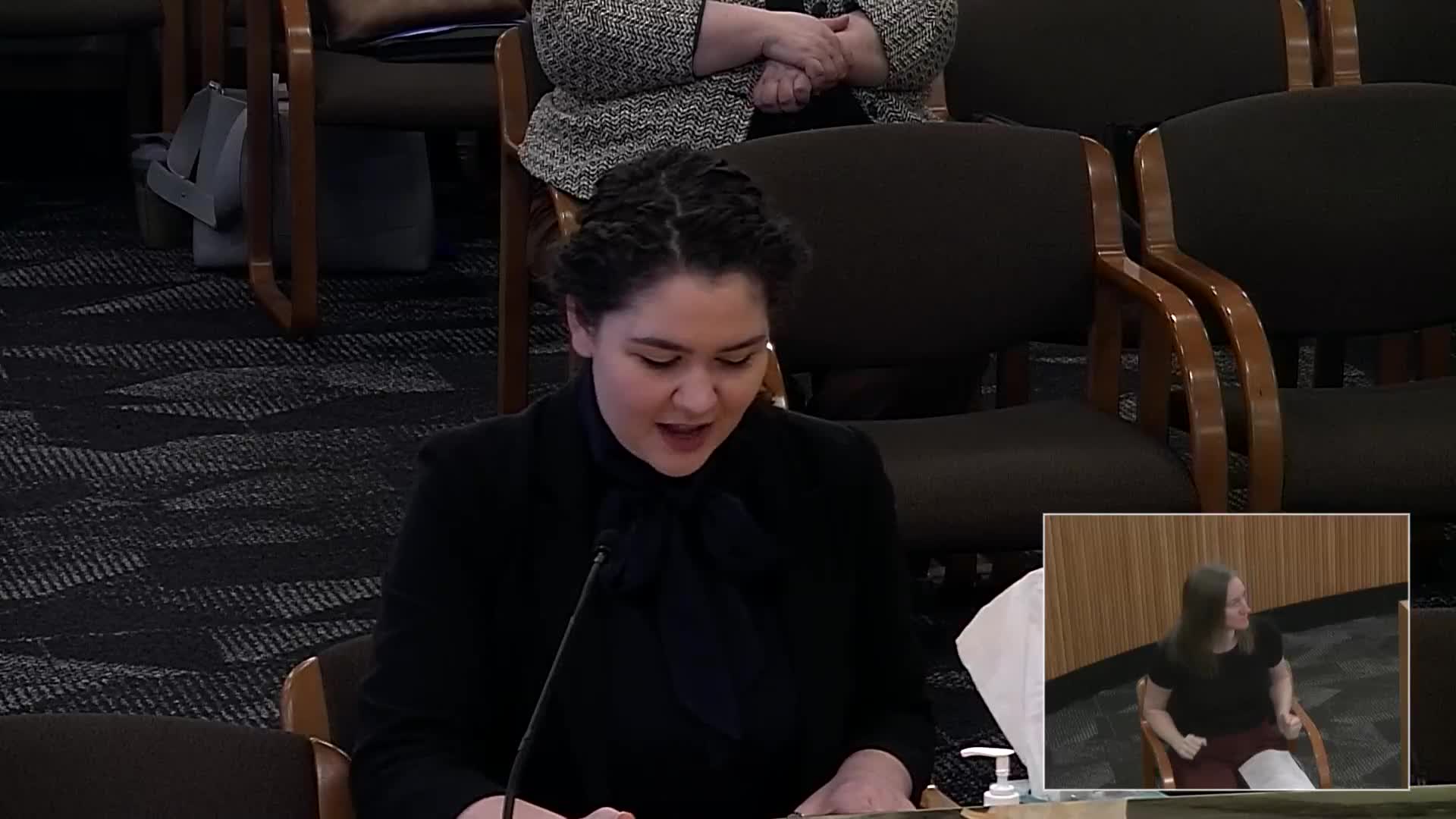Oregon committee hears bills to guarantee daily recess and fund after-school activities at Title I schools
Get AI-powered insights, summaries, and transcripts
Subscribe
Summary
Chair Frederick opened a public hearing March 26 on two related measures from Senator Gorsuch: Senate Bill 11‑26 would require public elementary schools to provide at least 30 minutes of recess each school day and prohibit withholding recess as punishment, while SB 11‑27 would appropriate $500,000 to fund supervised educational activities at Title I elementary schools, effective July 1, 2025.
Chair Frederick opened a public hearing March 26 on two related measures from Senator Gorsuch: Senate Bill 11‑26 would require public elementary schools to provide at least 30 minutes of recess each school day and prohibit withholding recess or imposing physical activity as a form of discipline. Senate Bill 11‑27 would appropriate $500,000 from the Statewide Educational Initiatives account to fund educational activities during recess, lunch and after school at Title I elementary schools and declares an emergency to take effect July 1, 2025.
Alexandria Goddard, legislative director for Senator Gorsuch, told the committee, “SB 11‑26 … ensure[s] that all public elementary school students in Oregon receive at least 30 minutes of recess each school day. This legislation also prohibits the withholding of recess or the imposition of physical activity as a form of discipline.” She said the bills aim to support student health, learning and equity and to expand structured enrichment at high‑need schools through the $500,000 grant program in SB 11‑27.
Playworks representatives and students testified in favor. Taylor Sarman of Playworks said the nonprofit partners with elementary schools “to help ensure that every child experiences safe and healthy play every day.” Ten‑year‑old Mickey Liebuch, a fourth‑grade student who said he attends Saint Cecilia School, testified, “Please vote for Senate Bill 11‑26 because all kids deserve recess.” Nine‑year‑old Izzy (third grade, Brainwater Elementary) said losing recess made it harder to manage emotions and attend school: “Taking away recess should not be an option.”
William Massey, associate professor at Oregon State University and research director at the Hallyford Center for Children and Families, summarized research evidence: “There’s no evidence to suggest that taking away any academic time for recess has any academic consequences. On the contrary, the data consistently show the opposite.” He said recess supports physical activity, emotional regulation and classroom behavior, and that state laws are associated with higher odds that students receive a minimum amount of daily recess.
Representatives of school governance and administration urged caution about implementation details. Adrienne Anderson of the Oregon School Boards Association and Morgan Allen, representing COSA, said current State Board of Education instructional‑hours rules (Division 22) limit how districts can count recess toward required instructional time: K–3 schools may count up to 60 hours; grades 4–5 count none. Morgan Allen noted the separate statutory requirement that elementary schools provide 150 minutes of physical education per week and warned that a new 30‑minute daily recess mandate could create conflicts with instructional‑hour accounting, collective bargaining and staffing unless the State Board or districts adjust scheduling or rules.
Committee members pressed for data about how often teachers withhold recess as punishment; witnesses said comprehensive statewide datasets are not available and offered to follow up with additional research. Dr. Massey told the committee that while robust statewide data on withholding are limited, available research indicates that recess withholding, when it occurs, disproportionately affects children from low‑income families and children of color.
Chair Frederick and committee members thanked witnesses; the committee did not take a vote at the hearing. The sponsors and proponents said they are willing to work with districts and the State Board to address instructional‑hours and implementation concerns.
Ending: The committee closed the public hearing without a vote. Sponsors said they plan follow‑up work to reconcile SB 11‑26’s daily‑recess requirement with existing instructional‑hours rules and to refine SB 11‑27’s administration so districts can access funds quickly for summer and school‑year programming.
